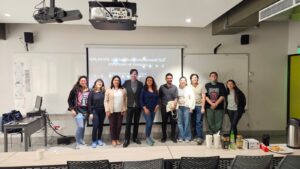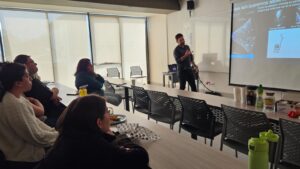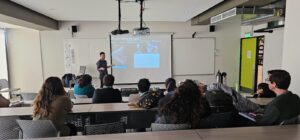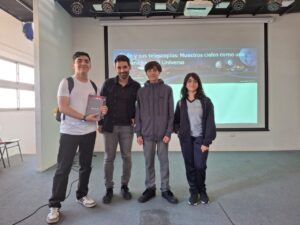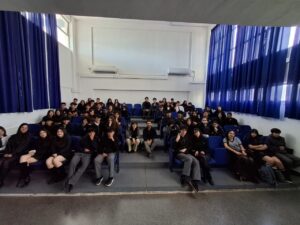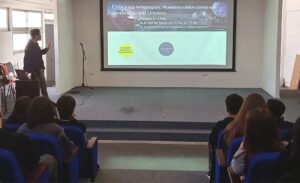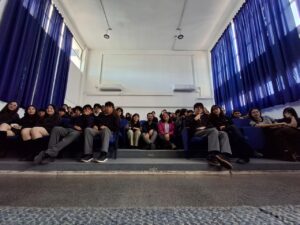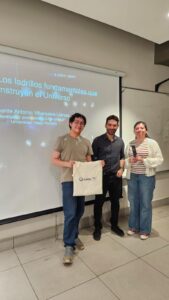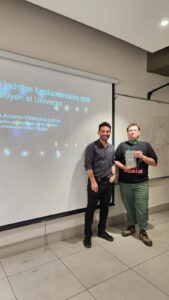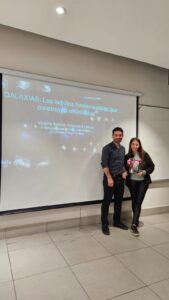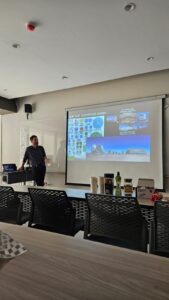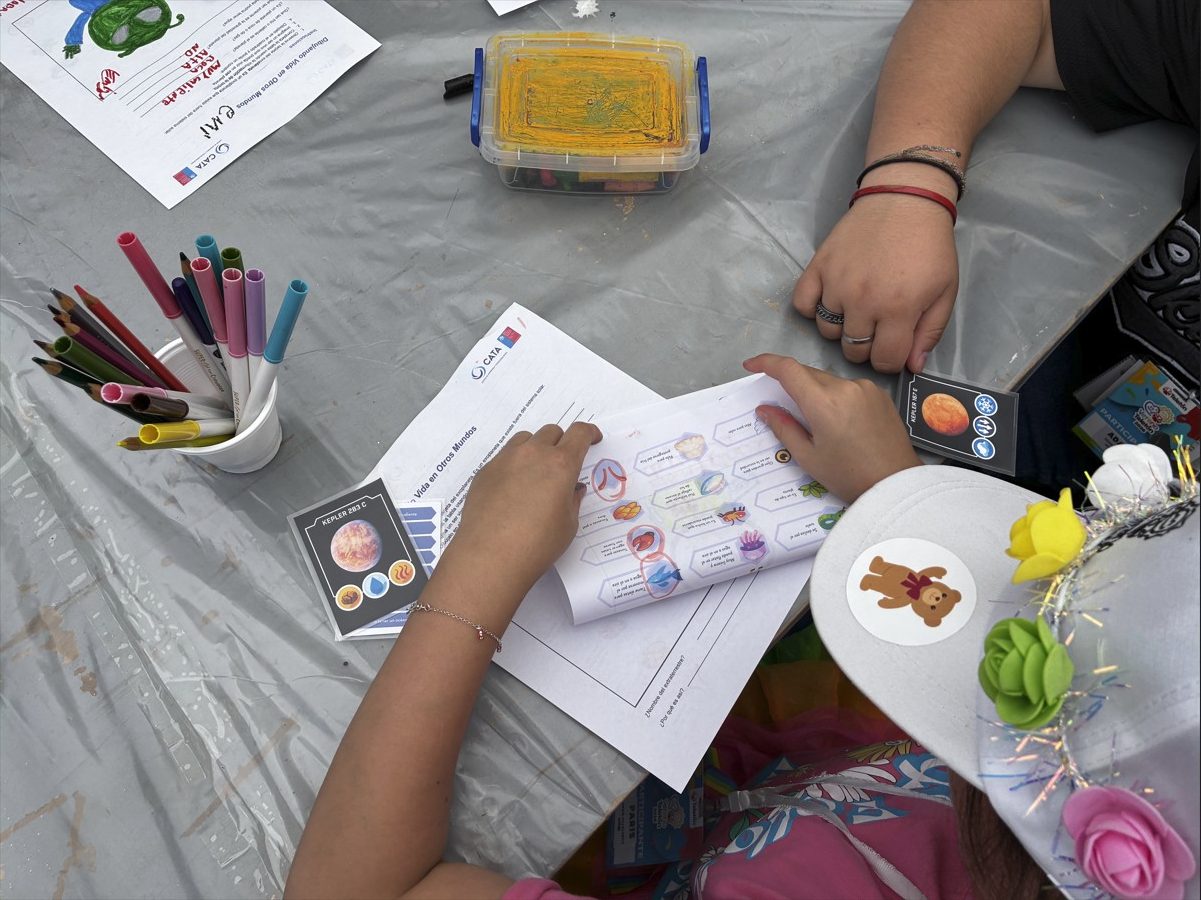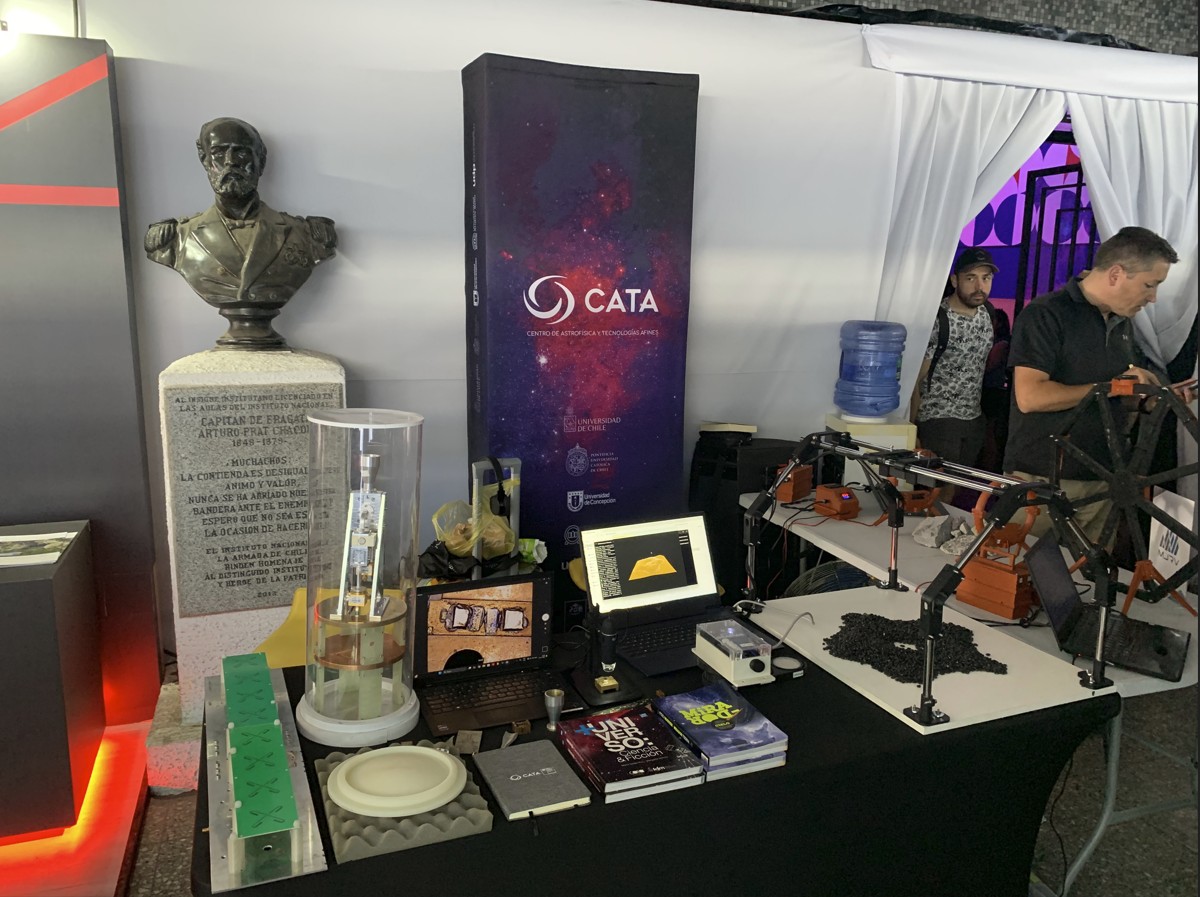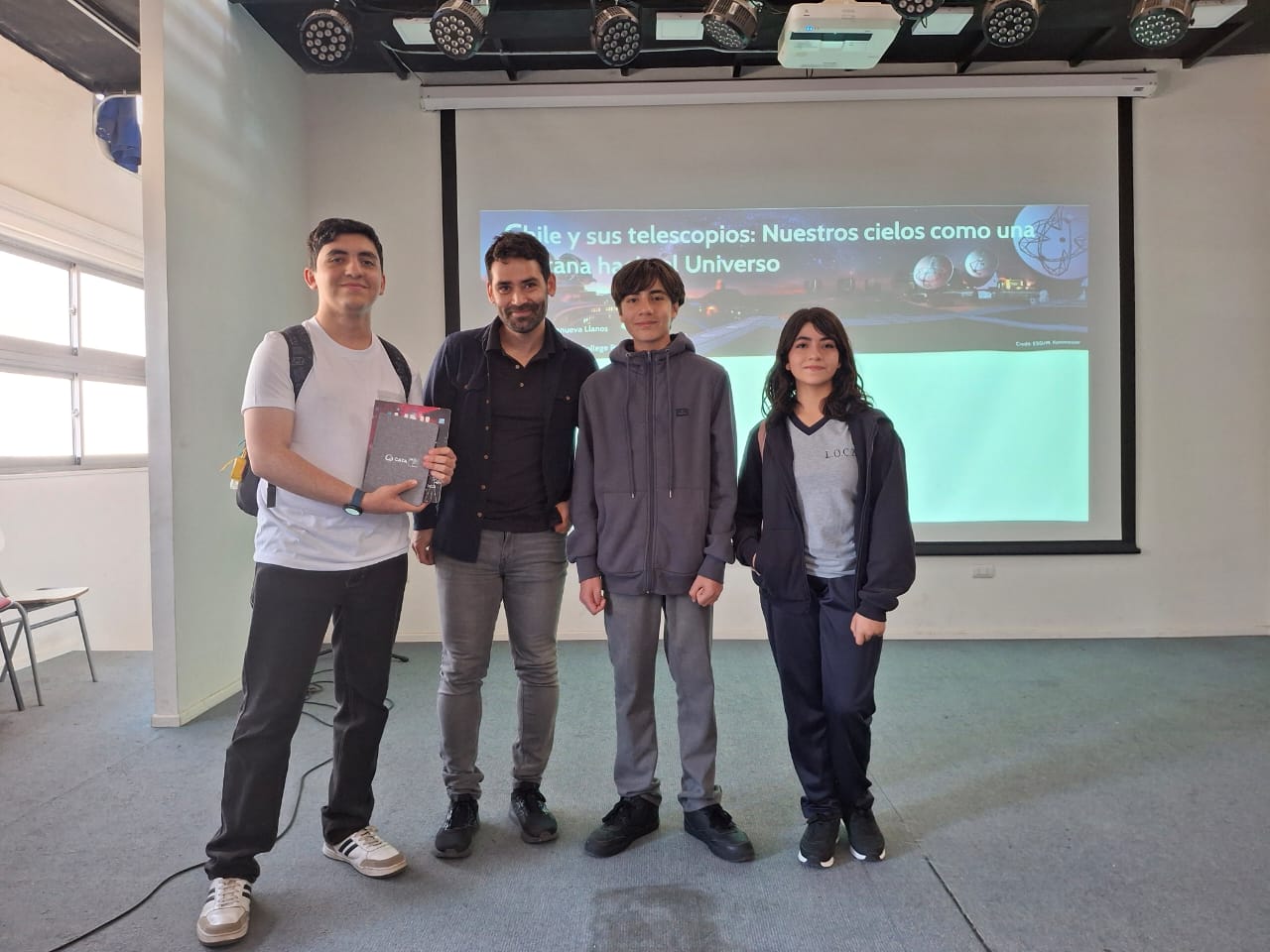
CATA astronomer conducts astronomy outreach activities in Rancagua
Vicente Villanueva, Postdoctoral Researcher at the Center, gave talks on astronomy at O'Higgins University and Óscar Castro Zúñiga High School.
Astronomer and Postdoctoral Researcher at the Center for Astrophysics and Related Technologies (CATA) and professor at Diego Portales University (UDP), Vicente Villanueva, carried out two scientific outreach activities in the O’Higgins Region, with the aim of bringing astronomy closer to different audiences and strengthening the link between science and education.
The first took place at Universidad de O’Higgins (UOH), where he gave a talk entitled “Galaxies: The fundamental building blocks of the Universe.” On this occasion, the researcher addressed the current state of research on the evolution of galaxies and shared with the audience (mainly science education students) the main open questions that guide the study of these cosmic objects.
Villanueva then moved on to the Óscar Castro Zúñiga High School, where he gave a talk entitled “Chile and its telescopes: Our skies as a window to the Universe.” Aimed at secondary school students, Villanueva explained why Chile is considered the world capital of astronomy, highlighting the value of its skies and the opportunities the country offers for the development of astronomical research.
Both activities were part of the science weeks organized by the respective establishments and coordinated by academic Tania Villa. In the case of the UOH, the event was promoted by the Department of Education, which sought to bring scientific research closer to future teachers. At the Liceo Óscar Castro Zúñiga, meanwhile, the initiative sought to motivate students to learn more about the universe and the opportunities that astronomy in Chile can offer as a career path.
The presentations included opportunities for conversation and questions, allowing for open discussion between the researcher, students, and teachers. “In particular, there was an opportunity to discuss the active role that we as scientists must play, even in elementary and middle school classrooms, working actively with teachers to promote critical thinking as a fundamental pillar in shaping the society we want to build,” said the CATA researcher.
The astronomer emphasized the importance of bringing science outreach and education to educational institutions.
The impact of science should not be limited to traditional academic spaces. If we want to encourage greater citizen participation in these disciplines, we need to reach out in a simpler and more democratic way to the places where our country’s citizens are actively being educated. The horizontality that these types of instances promote, in the form of conversation and within a framework of respect, are very nourishing for thinking about the true role—including the social role—that researchers can actively fulfill together with the people who are pushing Chilean education forward,” he emphasized.
Finally, the CATA Postdoctoral Researcher highlighted our Center as the bridge to achieve this rapprochement. “CATA, in short, provides its researchers with the resources that help foster this discussion with key players in education. The aim is to seek direct collaboration with future teachers and encourage high school students to take an interest in careers related to astronomy in the near future,” concluded Villanueva.
Recent news
-
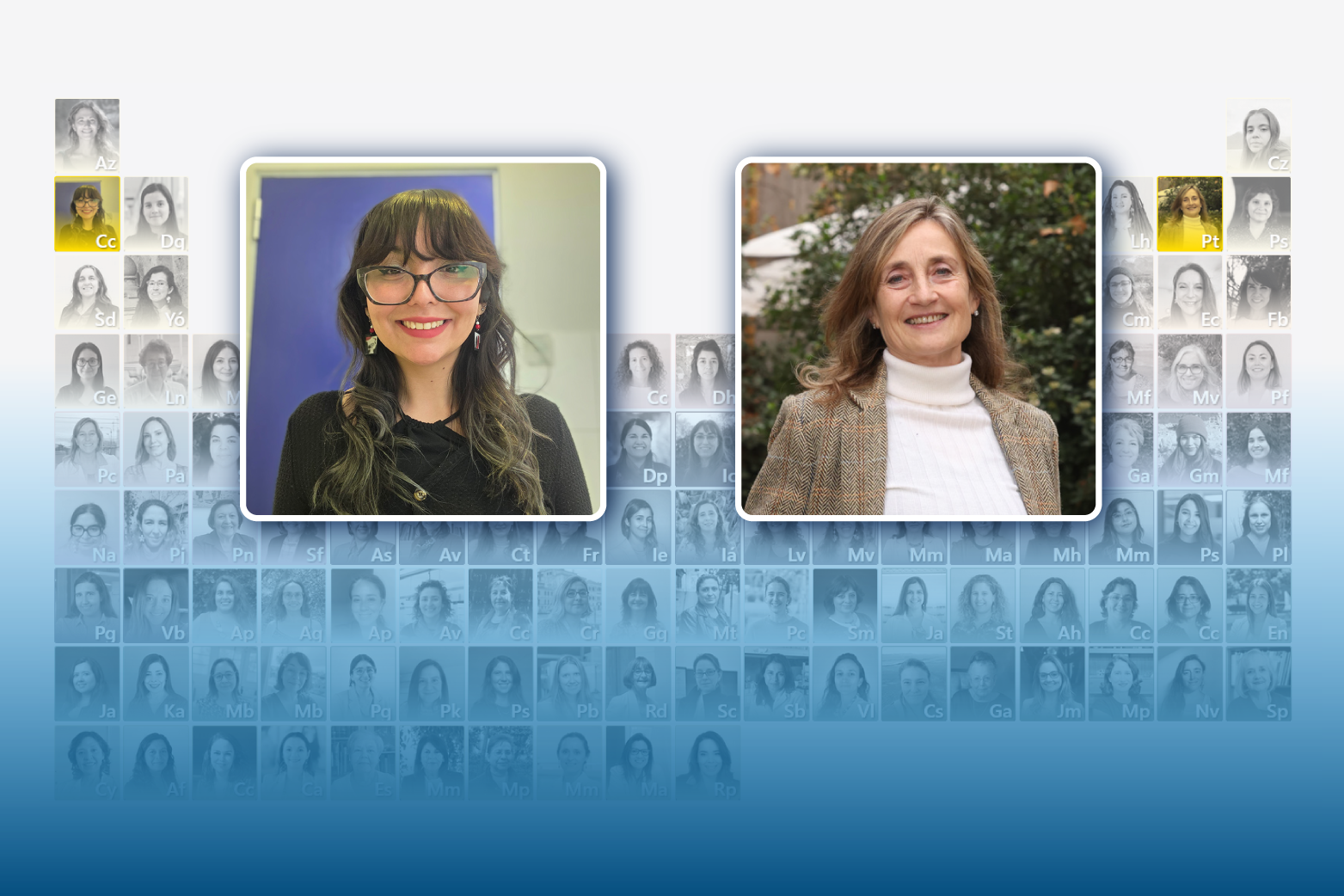 Publicado el: 17/02/2026The National Congress Library highlights CATA researchers in its second edition of Chilean Women Scientists
Publicado el: 17/02/2026The National Congress Library highlights CATA researchers in its second edition of Chilean Women Scientists -
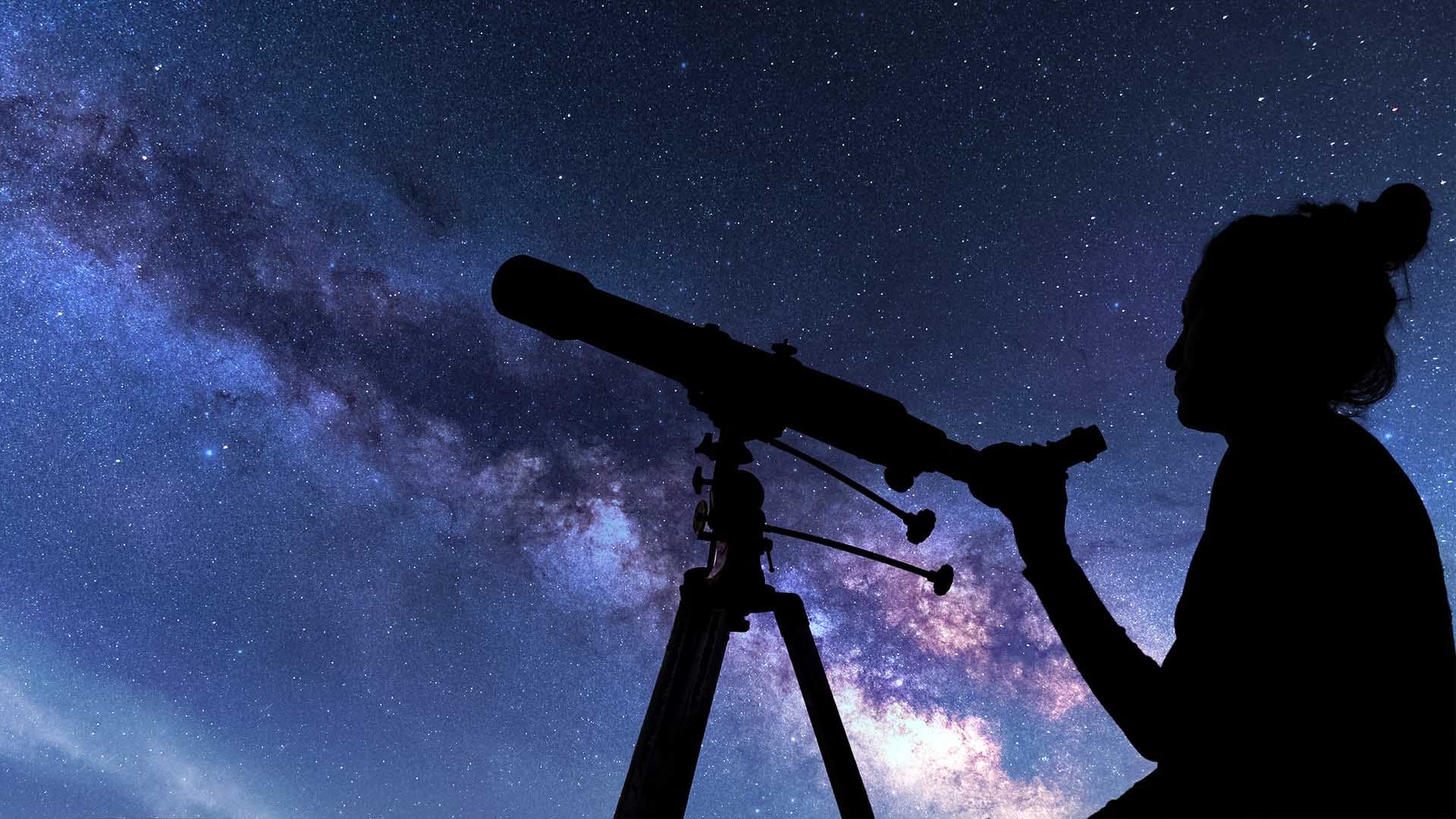 Publicado el: 11/02/2026Science with a woman’s face: gaps, vocations, and pending challenges
Publicado el: 11/02/2026Science with a woman’s face: gaps, vocations, and pending challenges -
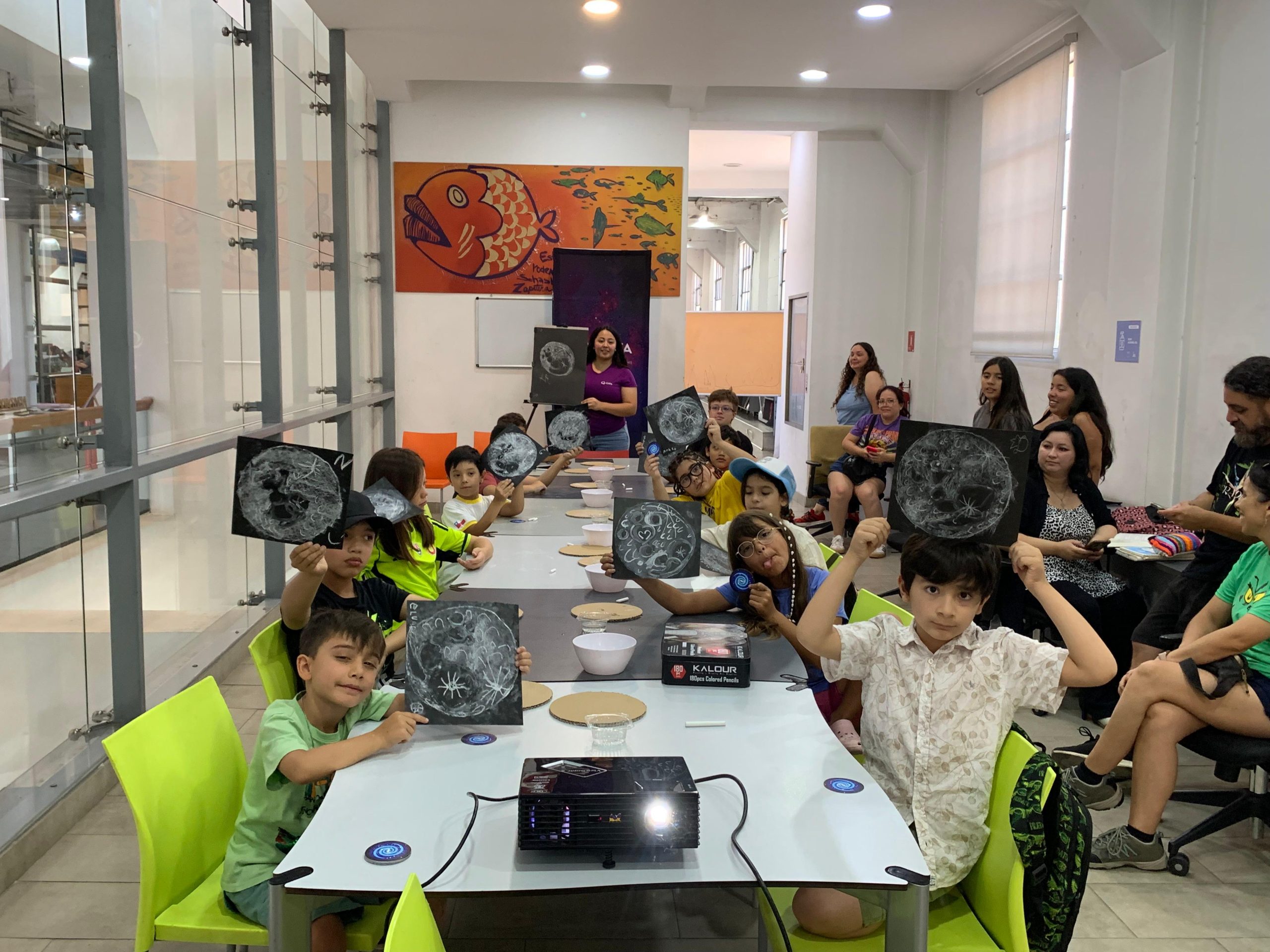 Publicado el: 09/02/2026Astronomy Day was held at the Santiago Library
Publicado el: 09/02/2026Astronomy Day was held at the Santiago Library -
 Publicado el: 30/01/2026Looking ahead to the next five years: Galaxies Area meets to share progress and strengthen research
Publicado el: 30/01/2026Looking ahead to the next five years: Galaxies Area meets to share progress and strengthen research -
 Publicado el: 29/01/2026Will Earth have two moons until 2083? The idea behind object 2025 PN7
Publicado el: 29/01/2026Will Earth have two moons until 2083? The idea behind object 2025 PN7
Categories list
- Acknowledgments 24
- Astrobiology 8
- AstroCluster 1
- Black holes 19
- Corporativo 62
- Cosmology 5
- Descubrimientos 25
- Disclosure 78
- Exoplanets 15
- Extension 6
- Galaxies 23
- Galaxies formation 7
- Inter y Transdisciplina 4
- Local Universe 17
- Publications 7
- Sin categorizar 36
- Solar System 24
- Stellar formation 8
- Technology 18
- Technology Transfer 20
